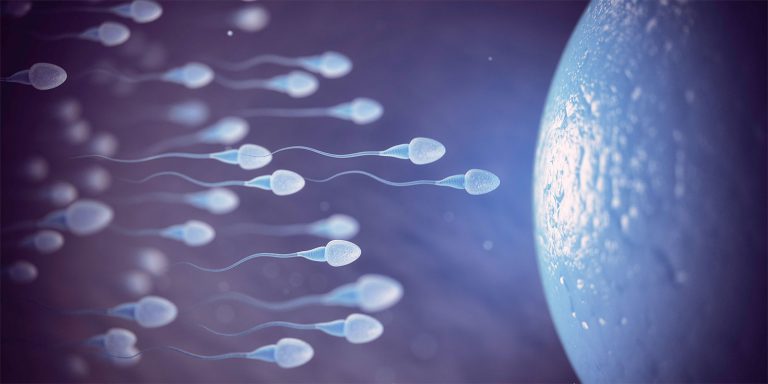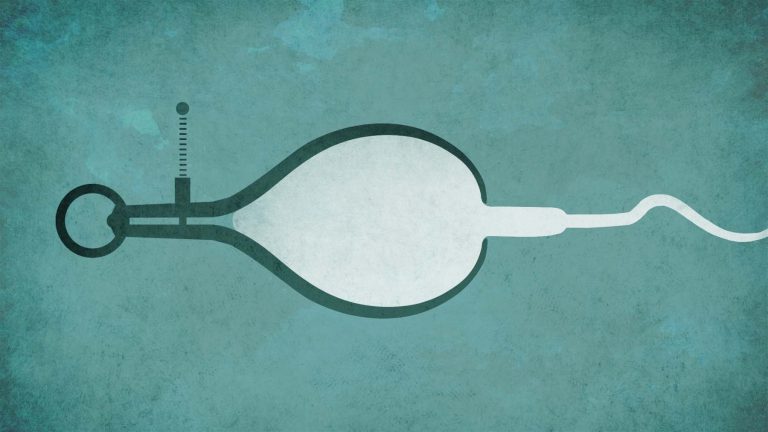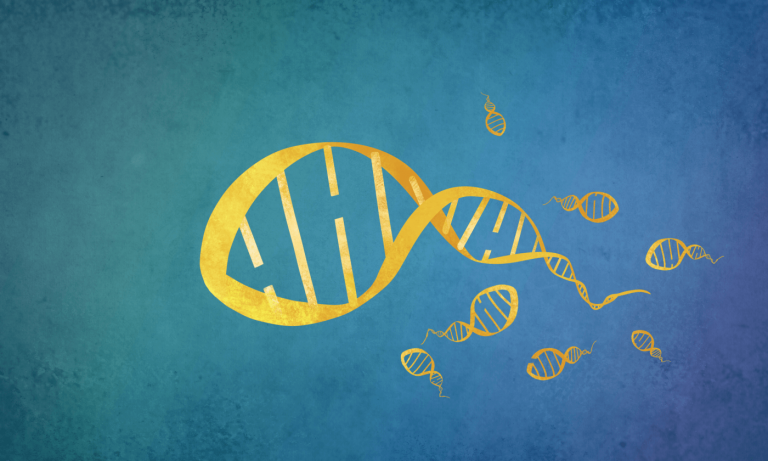How Does Weight Affect Male Fertility?

Medically Reviewed by Dr. Kevin J Campbell, MD, a fellow in Male Reproductive Medicine and Surgery at Bayor College of Medicine in Houston, TX, with Dr. Larry Lipshutlz.
The odds of infertility have been suggested to increase by 10% for every 20 pounds a man is overweight and there is growing evidence of conception and pregnancy complications as a result of male weight as well. Here we’ll look at seven questions about weight and male fertility.
1. Does weight affect fertility?
Yes. Being over- or under-weight can affect both male and female fertility.
Being overweight or underweight causes problems with ovulation in women, and maternal obesity can increase the rate of miscarriage, gestational diabetes, high blood pressure during pregnancy, and birth defects.
However, the effect of paternal (male) weight on fertility and birth outcomes has only recently been understood. Evidence is growing that paternal weight can play just as serious a part as maternal weight in fertility rates and fetal development.
2. Can being overweight or obese cause male infertility?
According to a 2006 study, the odds of infertility increase by 10% for every 20 pounds a man is overweight.
Research indicates that men who are overweight or obese take longer to conceive a child, independently of the female’s weight. Also, studies of couples undergoing ART (infertility treatment) show that obesity in males is associated with fewer pregnancies and an increase in miscarriage rates.
Taken together, these facts indicate that being overweight can definitely be an important factor in male infertility.
3. How does a man’s weight affect fertility?
Recent studies (Ex: here and here) suggest that male obesity reduces sperm count and sperm concentration (that is, how many sperm are found per milliliter of semen). This reduced sperm count might in part be a result of the fact that overweight men tend to have high levels of estrogen, lower testosterone, and a higher incidence of sexual dysfunction.
Some preliminary evidence has also been found that obesity affects male infertility by reducing sperm motility (a measure of how well the sperm move), and negatively affecting sperm morphology (how well the sperm are shaped).
Advanced Sperm Quality Testing. Easy, Mail-in Kit.
ORDER NOW4. How do I know if I’m overweight?
If you’re not sure if you’re overweight, perhaps the best solution is to consult a BMI (Body-Mass Index) calculator online, like this one provided by the National Institute of Health. A good BMI calculator takes your height, age, and sex into account and is the main way doctors determine if you are overweight.
Alternatively, a chart like the one below (by Baylor College of Medicine) can help you understand if you are overweight.
5. Will weight loss improve male fertility?
If you are concerned about being overweight and want to undergo a program of weight loss for fertility, talk to your doctor first.
Preliminary evidence from a study done in Canada in 2015 showed that male weight loss (as a result of better eating and exercise habits) can improve infertility and help a couple to conceive. And it does make sense that getting in better physical condition can contribute to better fertility.
There was also a 2016 study that shows weight loss alters sperm epigenetics. Epigenetic abnormalities may negatively impact fertility, but an improvement was seen in men who had bariatric surgery. You can learn more in another post of ours here.
Nevertheless, your doctor may have personalized advice specific to your medical history. For instance, if you are very overweight and on the older side of your fertile years, the doctor may recommend surgery rather than a course of only diet and exercise, or the doctor may wish you to follow a particular diet.
6. What are some other causes of male infertility?
Besides weight, other male infertility causes can include: varicoceles (swollen or varicose scrotal veins), infections of the reproductive tract, ejaculation issues, cancer, hormone imbalances, medications, physical defects of the reproductive organs, medical conditions like celiac disease, exposure to radiation or toxins like repeated X-rays, lead, industrial chemicals, drug or alcohol use, or stress.
There are tests available to help evaluate male fertility. If you are struggling to conceive, talk with your doctor. You’ll likely start with a semen analysis to get a basic understanding of your semen parameters and then may benefit from a more advanced test, like our male fertility test, which looks at your DNA and can help you identify underlying problems with your fertility.








